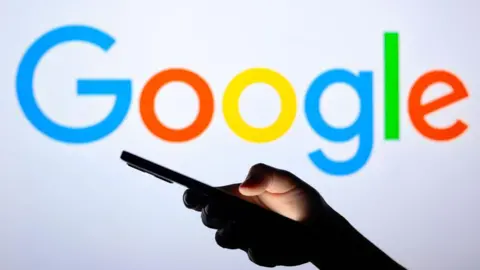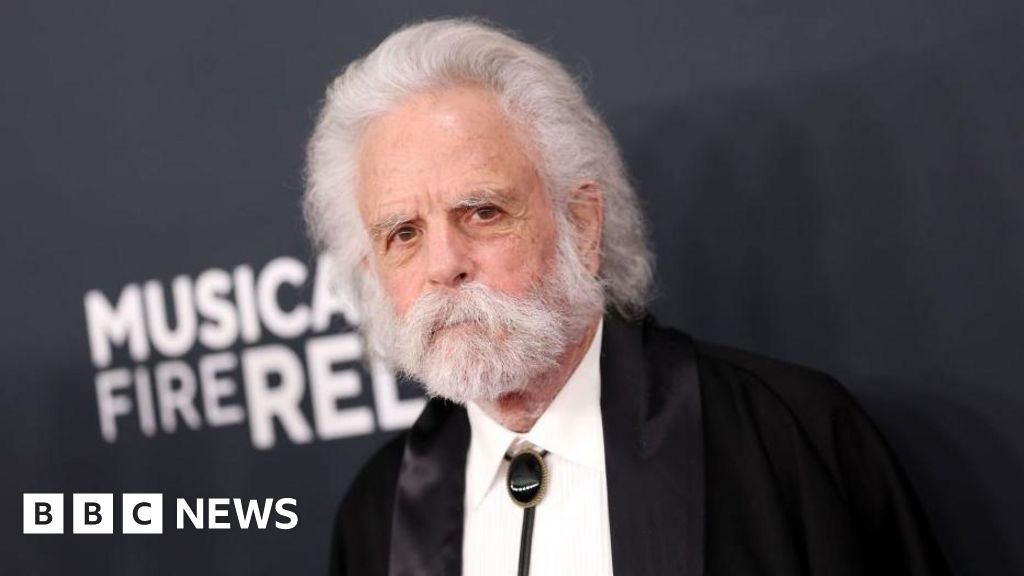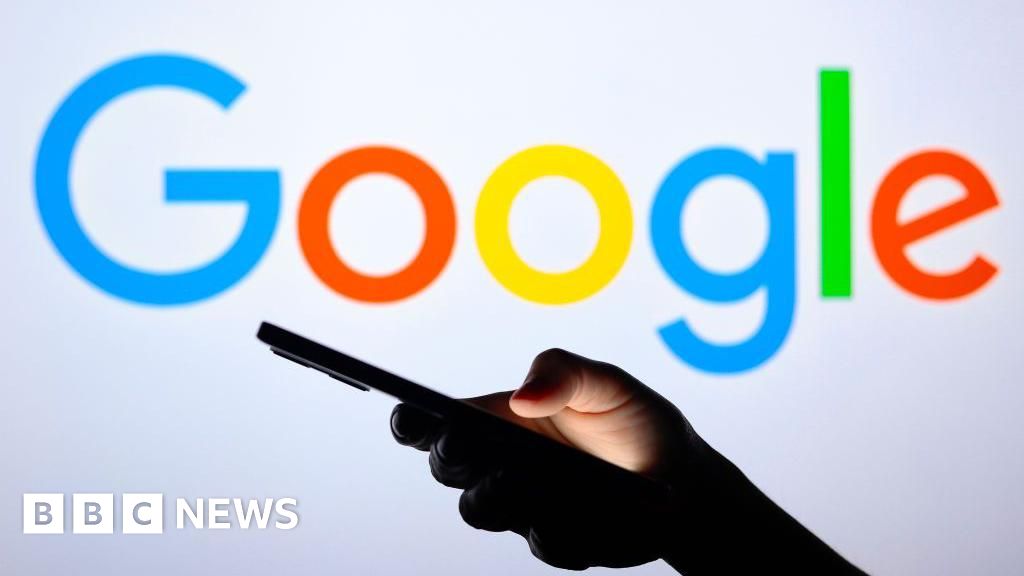 Getty Images
Getty ImagesThe tech world is digesting a US judge’s potentially seismic ruling that Google illegally monopolises online search and related advertising
It took four years to get to this point, and Google-owner Alphabet’s inevitable appeal means this the legal process is likely to carry on for some time yet.
But already the potential consequences of the judge’s decision are being considered, ranging from cash fines to other, more complicated remedies.
The US government specifically wants “structural relief” – so what could that look like?
Breaking up the band
The nuclear option would be to demand Google breaks itself into smaller chunks – a move US officials have not ruled out.
Google is much more than just search.
Just look at Android, a firm it bought for $50m (£39.3m) in 2005, which now runs on the majority of smartphones – or YouTube, a $1.65bn acquisition in 2006, which now generates many multiples of that in revenue each year.
The argument might be that all of these can remain under Google, but the actual search engine should be spun off into a separate business.
That might cause consternation for Alphabet executives. But as long as Google remained the default search engine on devices, the average consumer would be unlikely to notice the difference.
“Any such move would certainly be met with years of litigation and regulatory bun-fighting, but it seems to be far more ‘on the table’ than at any time in Google’s history,” said Gareth Mills, Partner at legal firm Charles Russell Speechlys.
“There will now be a separate hearing where the Judge will have no option to consider the divesture of Google from all or part of its search engine part of the business, or imposing other corporate governance controls to negate the anti-competitive conduct found to have already occurred.”
Google it
Another potential remedy centres on Google’s practice of paying other companies to use it.
The US said Google was currently paying firms like Apple huge amounts of money each year to be pre-installed as the default search engine on their devices or platforms.
The judge agreed.
The contention is, had Google never spent that money, the big firms might have been encouraged to develop their own search experience.
Instead, Apple’s Safari browser for example uses Google by default whenever you use it to search the web.
If remedial action significantly affected Google’s ability to pay other companies to use it, perhaps those firms might start a rival.
Here though they would run up against Google’s incredibly strong customer recognition for search. Despite its own high brand profile, it is hard to imagine telling someone to “Apple” something.
The iPhone-maker will of course be keen to keep the money from Google rolling in, which according to one analyst amounted to $20 billion in 2022.
“Any disruption to the revenue stream will have significant implications for Apple,” said Dipanjan Chatterjee from Forrester Research.
“As the case works through the legal system, and the likely outcome appears to be opening up search engine exclusivity, you can fully expect a brand as obsessed as Apple is about customer experience to have a Plan B to ensure a smooth transition for its customers.”
Hard to shift
Something that’s easier to imagine is some kind of choice screen, where people opening a browser for the first time are asked whether they’d like to use Google or an alternative like Microsoft’s Bing.
It is somewhat harder to picture that causing people to abandon Google in their droves, however, for the simple reason that for most people it simply works well.
Those of us with grey hairs will recall Google being one of several search engines to emerge at the dawn of the internet, with familiar rivals including Yahoo and Ask (formerly AskJeeves), and possibly less-familiar rivals including Lycos and AltaVista.
But over the next decade, Google didn’t just become the dominant player in the market, it became part of the way we speak.
Despite Microsoft launching its rival, Bing, in 2009, nothing has yet knocked Google off its perch.
Microsoft boss Satya Nadella testified in Google’s trial, perhaps hoping a judgment like this could finally help give Bing wings.
“The court may seek other ways to dismantle Google’s position as a default search engine but some of those remedies likely go beyond the facts driving this case,” said Professor Anu Bradford of Columbia Law School.
“For example, the EU is going further with its recent Digital Markets Act that forces even Google’s own Android phones to present users with a ‘choice screen’ that lets the user choose one’s preferred search engine when setting up the phone.
“One question is whether this new ruling paves way for such regulatory demands in the future.”
It takes time
Whatever happens next, past experience suggests it won’t happen quickly.
Back in 1999, Microsoft found itself in a very similar situation to where Google is now.
The firm had just been found by a US judge to have created a monopoly, and a year later a court ordered the firm to be broken up.
Microsoft appealed the decision, and in 2001 the original decision to break it up was overturned.
By the end of 2002 Microsoft had agreed a settlement with the US Department of Justice, which a judge accepted.
But some US states disagreed, and it wasn’t until 2004 – five years after the original ruling – that the settlement was officially signed off.































